第52章 ALICIA'S DIARY(27)
Within the innermost enclosure,though it is so wide that at a superficial glance the beholder has only a sense of standing on a breezy down,the solitude is rendered yet more solitary by the knowledge that between the benighted sojourner herein and all kindred humanity are those three concentric walls of earth which no being would think of scaling on such a night as this,even were he to hear the most pathetic cries issuing hence that could be uttered by a spectre-chased soul.I reach a central mound or platform--the crown and axis of the whole structure.The view from here by day must be of almost limitless extent.On this raised floor,dais,or rostrum,harps have probably twanged more or less tuneful notes in celebration of daring,strength,or cruelty;of worship,superstition,love,birth,and death;of simple loving-kindness perhaps never.Many a time must the king or leader have directed his keen eyes hence across the open lands towards the ancient road,the Icening Way,still visible in the distance,on the watch for armed companies approaching either to succour or to attack.
I am startled by a voice pronouncing my name.Past and present have become so confusedly mingled under the associations of the spot that for a time it has escaped my memory that this mound was the place agreed on for the aforesaid appointment.I turn and behold my friend.He stands with a dark lantern in his hand and a spade and light pickaxe over his shoulder.He expresses both delight and surprise that I have come.I tell him I had set out before the bad weather began.
He,to whom neither weather,darkness,nor difficulty seems to have any relation or significance,so entirely is his soul wrapped up in his own deep intentions,asks me to take the lantern and accompany him.I take it and walk by his side.He is a man about sixty,small in figure,with grey old-fashioned whiskers cut to the shape of a pair of crumb-brushes.He is entirely in black broadcloth--or rather,at present,black and brown,for he is bespattered with mud from his heels to the crown of his low hat.He has no consciousness of this--no sense of anything but his purpose,his ardour for which causes his eyes to shine like those of a lynx,and gives his motions,all the elasticity of an athlete's.
'Nobody to interrupt us at this time of night!'he chuckles with fierce enjoyment.
We retreat a little way and find a sort of angle,an elevation in the sod,a suggested squareness amid the mass of irregularities around.
Here,he tells me,if anywhere,the king's house stood.Three months of measurement and calculation have confirmed him in this conclusion.
He requests me now to open the lantern,which I do,and the light streams out upon the wet sod.At last divining his proceedings I say that I had no idea,in keeping the tryst,that he was going to do more at such an unusual time than meet me for a meditative ramble through the stronghold.I ask him why,having a practicable object,he should have minded interruptions and not have chosen the day?He informs me,quietly pointing to his spade,that it was because his purpose is to dig,then signifying with a grim nod the gaunt notice-post against the sky beyond.I inquire why,as a professed and well-known antiquary with capital letters at the tail of his name,he did not obtain the necessary authority,considering the stringent penalties for this sort of thing;and he chuckles fiercely again with suppressed delight,and says,'Because they wouldn't have given it!'He at once begins cutting up the sod,and,as he takes the pickaxe to follow on with,assures me that,penalty or no penalty,honest men or marauders,he is sure of one thing,that we shall not be disturbed at our work till after dawn.
I remember to have heard of men who,in their enthusiasm for some special science,art,or hobby,have quite lost the moral sense which would restrain them from indulging it illegitimately;and Iconjecture that here,at last,is an instance of such an one.He probably guesses the way my thoughts travel,for he stands up and solemnly asserts that he has a distinctly justifiable intention in this matter;namely,to uncover,to search,to verify a theory or displace it,and to cover up again.He means to take away nothing--not a grain of sand.In this he says he sees no such monstrous sin.
I inquire if this is really a promise to me?He repeats that it is a promise,and resumes digging.My contribution to the labour is that of directing the light constantly upon the hole.When he has reached something more than a foot deep he digs more cautiously,saying that,be it much or little there,it will not lie far below the surface;such things never are deep.A few minutes later the point of the pickaxe clicks upon a stony substance.He draws the implement out as feelingly as if it had entered a man's body.Taking up the spade he shovels with care,and a surface,level as an altar,is presently disclosed.His eyes flash anew;he pulls handfuls of grass and mops the surface clean,finally rubbing it with his handkerchief.
Grasping the lantern from my hand he holds it close to the ground,when the rays reveal a complete mosaic--a pavement of minute tesserae of many colours,of intricate pattern,a work of much art,of much time,and of much industry.He exclaims in a shout that he knew it always--that it is not a Celtic stronghold exclusively,but also a Roman;the former people having probably contributed little more than the original framework which the latter took and adapted till it became the present imposing structure.
I ask,What if it is Roman?
A great deal,according to him.That it proves all the world to be wrong in this great argument,and himself alone to be right!Can Iwait while he digs further?
I agree--reluctantly;but he does not notice my reluctance.At an adjoining spot he begins flourishing the tools anew with the skill of a navvy,this venerable scholar with letters after his name.